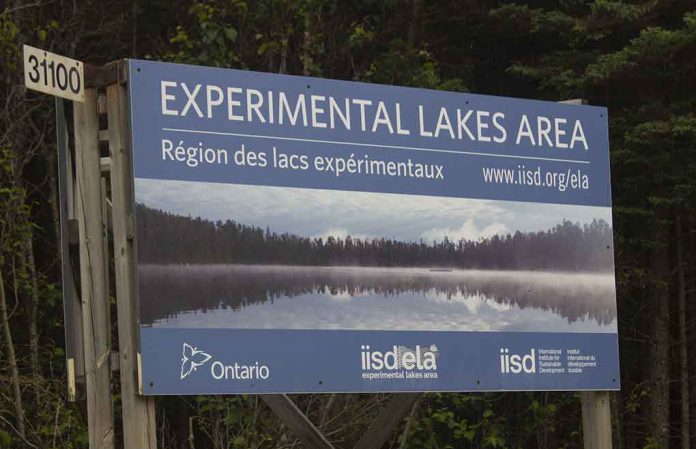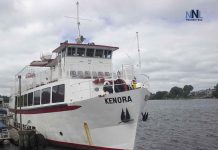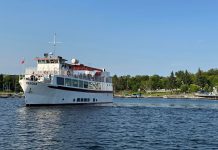Kenora – Business – The Ontario government has announced a significant investment of nearly $550,000 through the Northern Ontario Heritage Fund Corporation (NOHFC) to support a research project focused on sustainable aquaculture and local food production. The funding will be provided to IISD Experimental Lakes Area Inc. (IISD-ELA) for their innovative study on the use of fish waste as fertilizer and its impact on freshwater in cultivated wild rice paddy areas. This initiative aims to establish sustainable practices for co-cultivating fish and wild rice, with a specific focus on benefiting Indigenous communities.
Greg Rickford, Member of Provincial Parliament for Kenora–Rainy River and Minister of Northern Development, expressed the government’s commitment to fostering sustainable local food production and supporting the prosperity of northern and Indigenous communities. He stated, “We are proud to support this critical research in the North at one of the world’s most influential freshwater research facilities.”
IISD-ELA, in collaboration with various partners including the Myera Group, Lakehead University, Eagle Lake First Nation, and two additional First Nations from the Treaty 3 area, will spearhead the research project. The objective is to develop and implement community-based water quality monitoring systems and assess the health of fish in the watershed using non-lethal methods. Dr. Vince Palace, the Industrial Research Chair (IRC) at IISD-ELA, will lead the project.
Matthew McCandless, Executive Director of IISD Experimental Lakes Area, expressed his gratitude for the NOHFC funding, emphasizing the organization’s commitment to working with scientists, local communities, industry, and Indigenous partners. He stated, “We are thrilled to continue working together to build a new center for climate learning to benefit everyone in Northern Ontario today and for generations to come.”
The research program will delve into the implications of wild rice paddy production on First Nations communities, seeking to establish a more consistent supply of wild rice compared to current in-lake harvesting methods. Additionally, the project will explore fish cultivation through aquaculture. The Myera Group, a Metis-led biotech company, will play a crucial role in developing standard operating procedures for growing wild rice in flooded paddies that utilize fish waste as fertilizer. They will also focus on commercializing value-added foods derived from wild rice, such as Bannock and wild rice blends.
One of the project’s significant aims is to provide training and employment opportunities for Indigenous communities in technical wild rice and aquaculture operations, as well as environmental monitoring. Furthermore, the project aims to create sustainable jobs in the post-research phase. A collaborative working relationship has been established with Grand Council Treaty 3, and the project partners have developed a self-identification model for the three engaged First Nations. The ultimate goal is to create a culturally appropriate and sustainable wild rice harvest in Northwestern Ontario.
The NOHFC, which supports economic prosperity across Northern Ontario, has been instrumental in promoting growth, job creation, and skills development by providing financial assistance to various projects. Since June 2018, the NOHFC has invested over $685 million in 5,656 projects, leveraging more than $2.3 billion in investments and creating or sustaining over 9,000 jobs in Northern Ontario.
In addition to the NOHFC support, the Ontario government has contributed $149,600 to IISD Experimental Lakes Area Inc. through the Resilient Communities Fund grant from the Ontario Trillium Foundation. This grant aims to assist in the organization’s recovery and rebuilding efforts in the aftermath of the COVID-19 pandemic.
Quick Facts:
- IISD-ELA Inc. operates the IISD Experimental Lakes facility, which has been a continuous site for scientific freshwater research for over 50 years.
- IISD-ELA collaborates with more than 26 North American universities and multiple federal and provincial governments. It has established relationships with many member communities of Anishinaabe Grand Council Treaty 3 and the Metis Nation of Ontario.
- The Myera Group Inc., a Metis-led biotech company based in St. Francis Xavier, Manitoba, focuses on utilizing software, sensor technology, and biotech solutions to solve traditional agricultural problems while respecting traditional methods and practices.
- The Ontario Trillium Foundation (OTF), an agency of the Government of Ontario, celebrates 40 years of grant-making in Ontario. It has made a lasting impact in communities by investing over $110 million into 1,022 community projects and partnerships. Last year, the OTF also provided funding for the Government of Ontario’s Community Building Fund. For more information, visit otf.ca.







